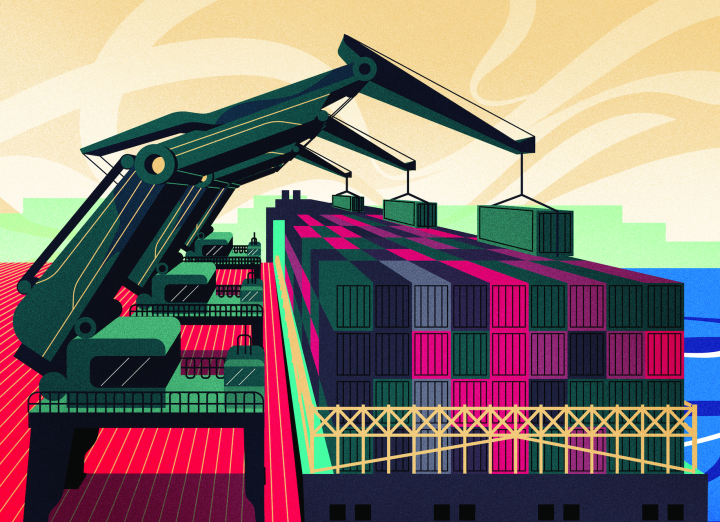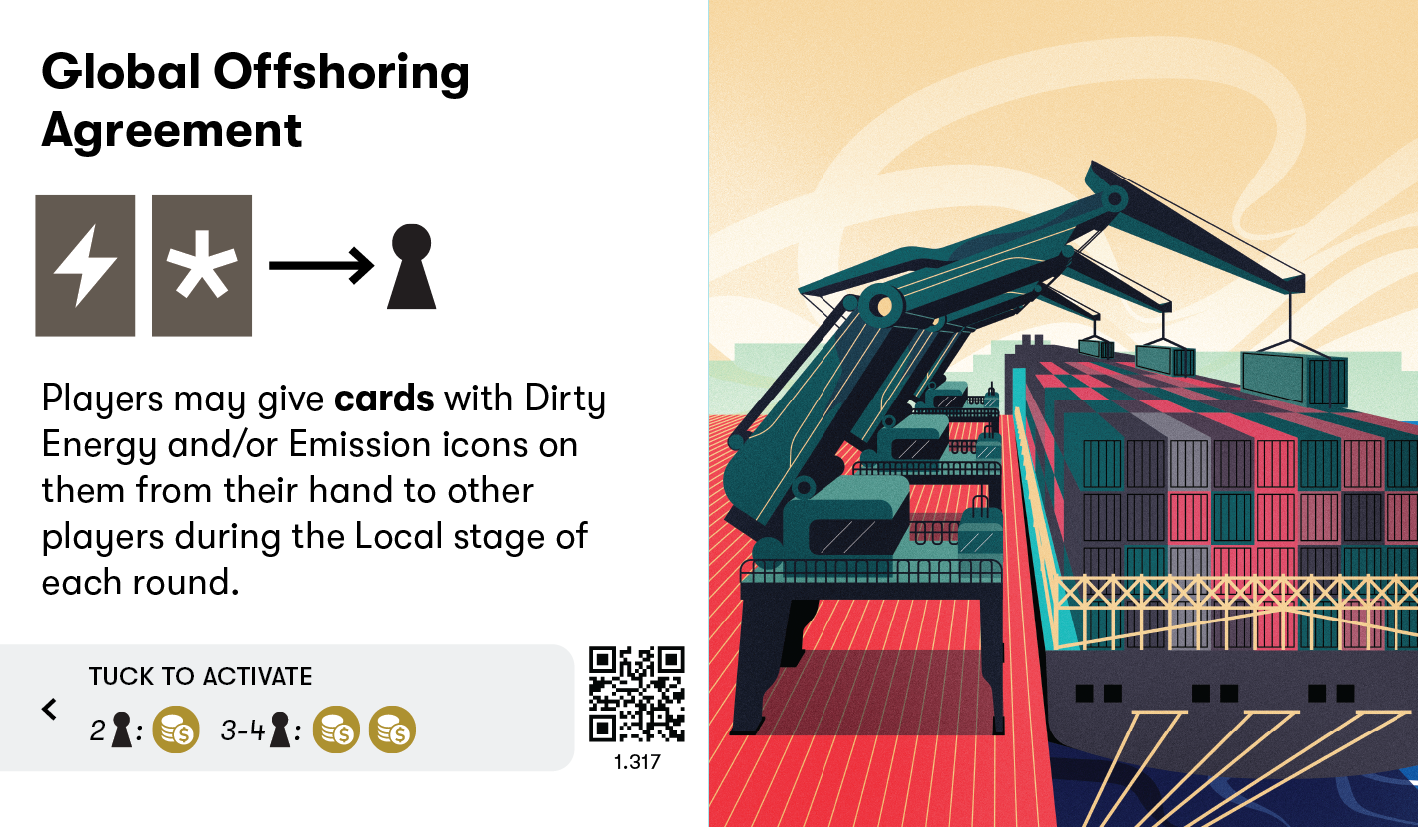Global Offshoring Agreement
Global Project
Offshoring is when an organization (or state) runs some of its operations in another country, or in several. For example, a shoe company may ship rubber from South America to China to make shoes, and then ship those shoes to Europe to sell them.
Offshoring can help decrease the costs of producing goods by taking advantage of lower wages for workers, or simply infrastructure and expertise that exist in other countries. However, it frequently creates unnecessary transportation of goods and resources across long distances. It also can allow businesses to avoid human labor and environmental laws in the country it normally operates in by producing goods in less regulated countries and taking advantage of vulnerable, less fairly paid populations. This prevents consumers and even businesses themselves from seeing the true environmental and human impact of goods or services.
Global offshoring agreements can help make goods and services better for people and the environment by reorganizing production so goods are produced more sustainably and equitably. This includes reshoring of goods and resources - moving production of goods to the destination country - and requiring common standards and regulations in all countries. An agreement can include transferring knowledge, technology, and even laws between countries.
Reshoring helps reduce the energy required for transportation, lowers costs associated with transporting goods across long distances, and ensures that goods are produced within a country’s human rights and environmental laws. However, agreements only work if both countries and businesses acknowledge the risks to supply chains and look beyond short-terms costs to long-term sustainability.
To activate this Global Project, players need to tuck Local Project cards from their hands under this card. The requirement is 1 Incentive tag in a Solo or 2-player game, or 2 Incentive tags in a 3-player or 4-player game.
Once active: Players may give cards with Dirty Energy and/or Emission (Transportation, Industry, Agriculture, etc.) icons on them from their hand to other players during the Local stage of each round.

How the great supply chain reset is unfolding (Ernst & Young, EY)
A more sustainable supply chain (Harvard Business Review)
📄 Imperialist appropriation in the world economy: Drain from the global South through unequal exchange, 1990–2015 by Jason Hickel, Christian Dorninger, Hanspeter Wieland, Intan Suwandi
Choose to purchase goods that are produced locally or regionally, rather than those that are produced in other parts of the world.
Only work with suppliers and contractors who pay a fair wage to workers and who comply with environmental and wellbeing regulations.
Advocate for policies that encourage local production of goods and resources. Share expertise and knowledge internationally.